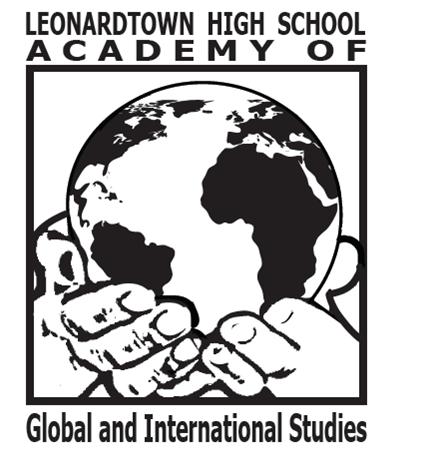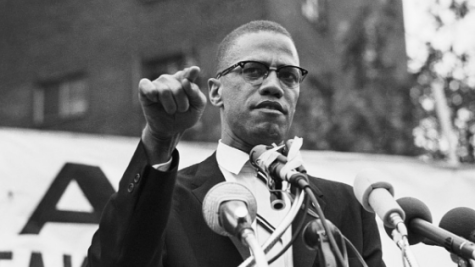Capstone: The Good, The Bad, The Ugly

September 22, 2016
Capstone, /ˈkapˌstōn/: a project for students to demonstrate mastery of knowledge and skills based on a global problem. To the students of the Global and International Studies (GIS) program: the bane of their existence. Since beginning work on their projects in their junior year, the senior GIS class is now slowly but surely feeling the chains of Capstone loosen as more and more assignments are due and they prepare for the big day, presentation day.
The Global and International Studies program here at Leonardtown High School aims to provide students with knowledge of cultures, global issues, and world religions. According to Tracy Harding, teacher and director of the GIS program, “students participating in the program studies develop skills in communicating in languages other than English, working in global or cross-cultural environments, and using information from different sources around the world.”
The program is an opportunity for students to develop a greater respect and appreciation for cultures and people other than their own. GIS students attend both AP and pre-AP courses throughout their high school career, courses that foster student’s organizational, public speaking and writing skills. In order to graduate with GIS distinction, students must complete all required courses, receive a passing grade on the year-long Capstone project, and maintain a 3.0 GPA.
The Capstone project is a year-and-a-half-long research project in which students analyze, consider solutions, and present a global issue. As a student of the project, I chose the topic of Islamophobia, to combat the stereotype that “all Muslims are terrorists.” Others topics include tackling the misrepresentation of women in literature, the United States’s status as global hegemon against the backdrop of China, the importance of writing and literature to empathy, and 20 others. These are real-world issues in need of solutions and the Capstone’s purpose is to get the public involved in them.
From day one, the Capstone process has been a rigorous and strenuous one where the workload only swells. Students, first, write a proposal in which they describe their topics of choice, their motivations for their topic, their target group, and how their project will benefit the community, any organization with whom they are partnering, the source materials required to complete the project, an estimated timeline of when events will be completed, and their project mentor. The Capstone committee, then, approves or denies the project. And if that seemed like a lot, students then complete a four-step process that culminates in a research paper. The student must outline the problem, its impacts on the world, what can be done to fix the issue, people who have an effect on the issue, what the student is going to do to fix the issue, proposed policies to help combat the problem, and much more. This paper is submitted at the beginning of senior year but the workload does not lighten. After the paper comes the product and preparation for the formal presentation. Over the summer, students prepare a website, documentary, or exhibit during the summer that will be displayed on November 1, the night of Capstone Symposium. On both this night and during presentations, students show mastery of their chosen topic in a twenty-minute presentation before a panel of ten or more judges. This is perhaps the most stressful part of the Capstone process, as students often want to do well and demonstrate that they know their topic.
Overall, the Capstone can be quite rewarding. GIS students graduate with skills and knowledge of global issues that other high schoolers do not have the opportunity to explore and grow. GIS senior Jason Ferris describes the Capstones as, “sort of rewarding. There were times when I wanted to pull my hair out and question why I did this to myself, and there were times when I completed long sections after hours of research and when I held my capstone service and got excited about what I was doing. There were times that I hated it and there were times that I loved it.”
This seems to be the trend with many GIS students as Katharine Cognard-Black, another GIS senior, describes Capstone as a “mixed bag.” She states “I am glad that I chose a topic that I really liked, because with the amount of work you have to do, you need to be passionate about your topic, or you will lose interest. Overall, I think that the paper was very stressful to write. I enjoyed learning about my topic, but all of the facets of the paper and all of the requirements of the citations took a lot out of me. Apart from that, I’m excited to do my service project, I’m really excited to present, and I am excited to do my exhibit. I think Capstone is a mixed bag.” There were other students, like myself who saw it as a long journey with practically no end in sight. However, now that it is coming to an end, I see the skills have I have acquired because of the Capstone process, how much better I am at learning and presenting my knowledge.
At times, Capstone may seem very stressful, but know that in the end, everything will be O.K.! It is important to work diligently, ask questions, manage your time wisely so you are not up late the night before anything is due. Keep faith in yourself and know that people are here to help! To all future GIS students who may be worried about their Capstone, don’t be! Everyone is on your side. You can do it, good luck!
Xoxo,
Michael Miles









